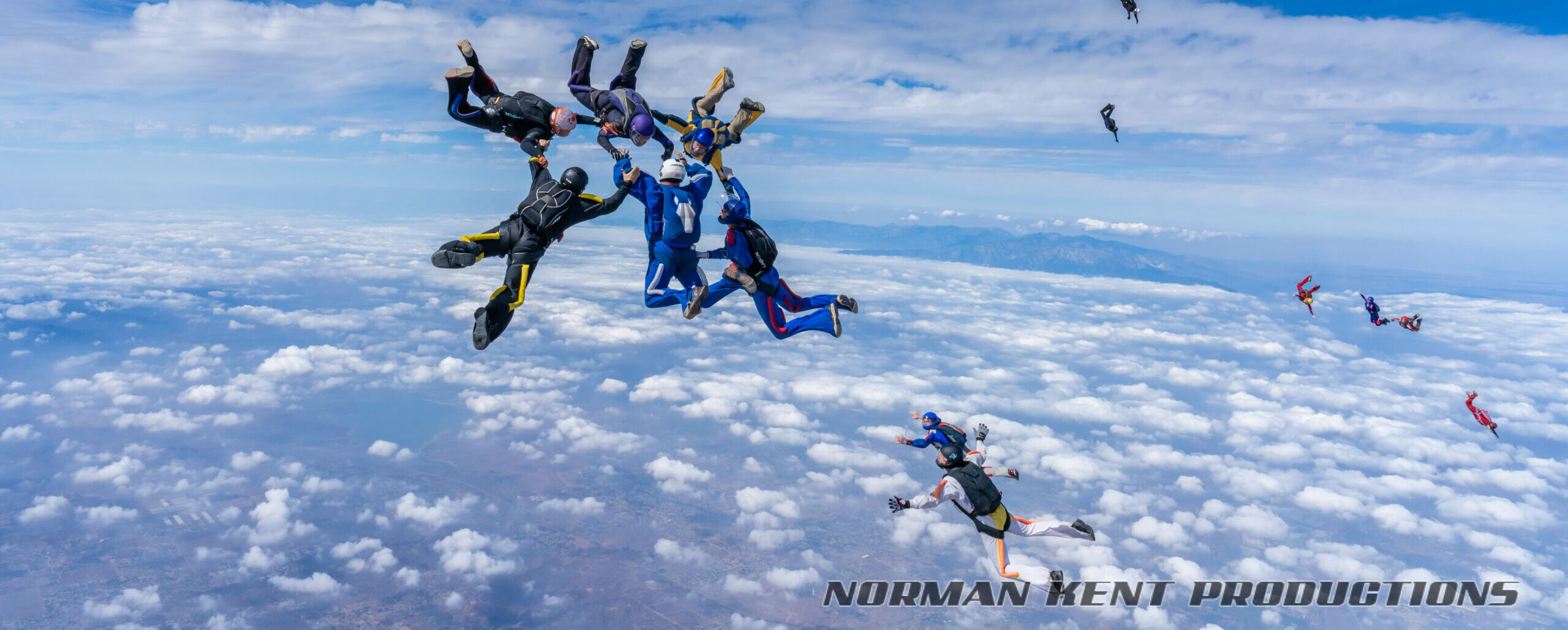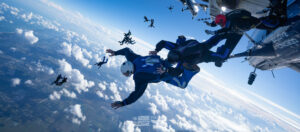All of my favorite skydivers talk about the importance of being the right amount of calm on a skydive. Dan Brodsky-Chenfeld in his book, Above All Else, talks about being “on the line.” Kate Cooper-Jensen will talk about trying to quiet your “lizard brain” which is telling you this is a bad idea and is ramping up your adrenaline. Christy Frikken explains how important it is to be calm, and how to calm down in the middle of a skydive. The common thread with all of these is that in intense situations like skydiving, adrenaline is not your friend. Good skydivers are not “adrenaline junkies” at all.
Recently, I realized that being calm is not enough. I need to be relaxed.
Story Time:
When I was first skydiving I realized that one of the most terrifying experiences I could have as I sat in the plane before a jump was having nothing to do. When there was nothing to plan or rehearse, my mind would go directly to how scared I was. This is what drew me to jumping with other people and making formations. If there was a plan, then I could spend the time in the airplane rehearsing the plan and visualizing the skydive. This kept my mind fully occupied and I simply didn’t have time to be afraid.
To this day I still get very nervous if I don’t know what I’m going to do in freefall.
On a recent skydiving training camp I attended I was pushing myself to try new things. I thought I had gotten pretty good being calm before a skydive. I had a song I would sing in my head that was from when my kids were small, and I would go through the jump in my mind as we climbed to altitude. My heart rate was slow, and my breathing was slow and steady. Anyone looking at me in the airplane would think I was napping. When I went low on the first few jumps, however, I quickly got frustrated with myself. That frustration did not lead to better performance, but just the opposite.
When the camp was over, my coach told me she could see me getting in my own head and psyching myself out before each skydive. I was flummoxed. Wasn’t I calm? Wasn’t I breathing slowly and visualizing the perfect skydive? What was missing?
It wasn’t until a week later that I realized that although I was calm, I was not relaxed.
I had flown across the country to attend this camp, and left my wife to take care of the kids while I was there. I had set a goal for myself that I could be in any part of a large formation, despite my very fast fall rate. I was there to prove to some of the best skydivers in the country that I belonged there, with them.
That was not relaxed.
I was spending the 20 minutes in the airplane as we climbed to altitude visualizing each moment of the skydive. I repeated this process until my brain hurt. I focused on each stage of the jump and what it would look like if it went perfectly. Between getting on the plane and exiting to start the skydive I probably would rehearse the jump in my head 30 times.
That was not relaxed.
It really didn’t matter how slow my heart rate was. I had turned my tools for calming myself down, namely rehearsing the upcoming jump, into a way of making myself incredibly tense. By the time I exited the airplane I was a tightly wound spring, regardless of how slow and measured my breathing was.
It turns out your body can be very calm while your mind is very worked up.
Think of a time that you performed at your absolute best. What was your state of mind right beforehand? That is the place you need to be if you want to perform that way again.
Kate Cooper-Jensen
I know what my mindset is when I am at my best. I am laughing at my mistakes instead of fixating on them. I am remembering that I am having fun, and that fun is the whole point.


